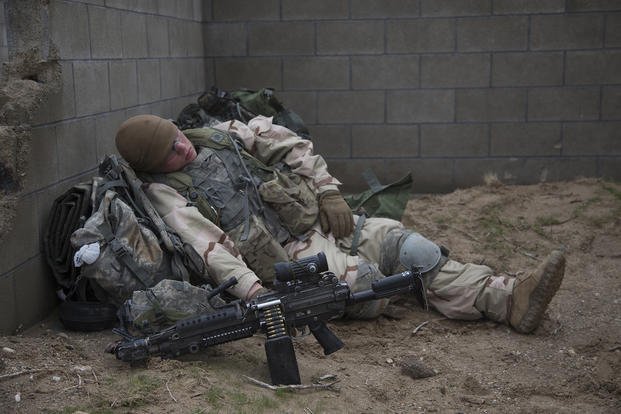If you are in the tactical professions (military, police, fire, EMT), you train so you can do your job and do it well and without injury when needed -- sometimes at a moment's notice. That is tactical fitness. Many members in the regular military, police and fire departments, and special operations programs will spend significant time working long hours, moving or carrying heavy equipment (sometimes for long distances) and not necessarily having access to the best foods. The sleep deprivation, an alternative diet and long, grueling hours on your feet will take its toll on your mind and body after a few weeks.
Recovering from this activity so you can do it again is why we train as tactical athletes. But what's the optimal way to make that happen?
Here are a series of steps to take before, during and after long-term, "in the field" training events that physically and mentally wipe you out. They also train you with skills that make you actually better at your current job.
Going into these types of training events in your best condition is the goal, with recovering and rebuilding after added as a necessity. It is a cycle you need to accept, versus thinking you are "getting out of shape" or "losing all your gains" in the field. The field is where you make your tactical gains that are just as important as physical testing gains.
Before You Leave
Before going into long working and training events, make sure you are well-rested, well-fed and fully trained to the best of your ability. That's especially true if the next training cycle or deployment is going to be physically tough with all the things than burn you out (long hours, little sleep, MREs or missed meals, steep learning curve or high-stress situations, and little to no PT time).
The balance of recovery on your end before going into hard training events is hydration and electrolytes, nutrition, sleep and balanced fitness. Making sure you are maximizing the efficiency of all the above is critical to a solid foundation of health and wellness going into these challenges of your job. Make sure you bring the gear you need: clothing for the weather, electrolytes, good snacks, earplugs for sleeping around snoring people and eye cover in case you can nap during the day.
Related: Recovery Tools of the Trade
During the Deployment and Training Cycle
During time in the field, the goal is stress relief, aches and pain relief, wound care and taking care of your feet and joints of the body. If you are lucky and any of the big four is available (food, sleep schedule, time off to rest and train), it will help with your performance. If not, the number one thing you can control is your hydration and electrolytes.
These will help avoid one of the biggest killers to performance -- becoming a heat casualty. If you can, bring some favorite foods and snacks that agree with your stomach and that your body is used to. Make sure you stretch every day if you cannot get in full workouts. If possible, mix in some calisthenics with push-ups, pull-ups, dips and plank poses on upper-body days and squats, lunges and hip raises even if only for 10-15 minutes.
Back Home: Recovery and Training Again
After you arrive back to your normal routine, make sure you start with your gut health first -- especially if having to miss meals, eat MREs or dine at small DFAC food services when on travel. A few good meals and a few solid nights' sleep, along with a few days of recovery workouts, is not a bad idea for your first few days upon return.
Typically, you will find that for every day of not working out or being in the field with poor recovery (food, sleep, stress), it will take you one or two days to get back to where you were. In a few weeks, you will feel like you are able to train at the same intensity you had been before you left for the training deployment.
High-stress training and work cycles are part of the job with the tactical professions; this is why we have to train to be able to handle them with resilience and snap back to our old selves quickly. Knowing how to recover from them will help you avoid injury, avoid prolonging your burnout and keep you healthy in the future. It also will help you avoid the many overtraining and over-stress symptoms that occur with these jobs.
Sometimes less is more when you return from travel. A healthful dose of sleep, good food and recovery after physically and mentally tough periods of training and working is just what the doctor ordered.
Stew Smith is a former Navy SEAL and fitness author certified as a Strength and Conditioning Specialist (CSCS) with the National Strength and Conditioning Association. Visit his Fitness eBook store if you’re looking to start a workout program to create a healthy lifestyle. Send your fitness questions to stew@stewsmith.com.
Want to Learn More About Military Life?
Whether you're thinking of joining the military, looking for fitness and basic training tips, or keeping up with military life and benefits, Military.com has you covered. Subscribe to Military.com to have military news, updates and resources delivered directly to your inbox.















